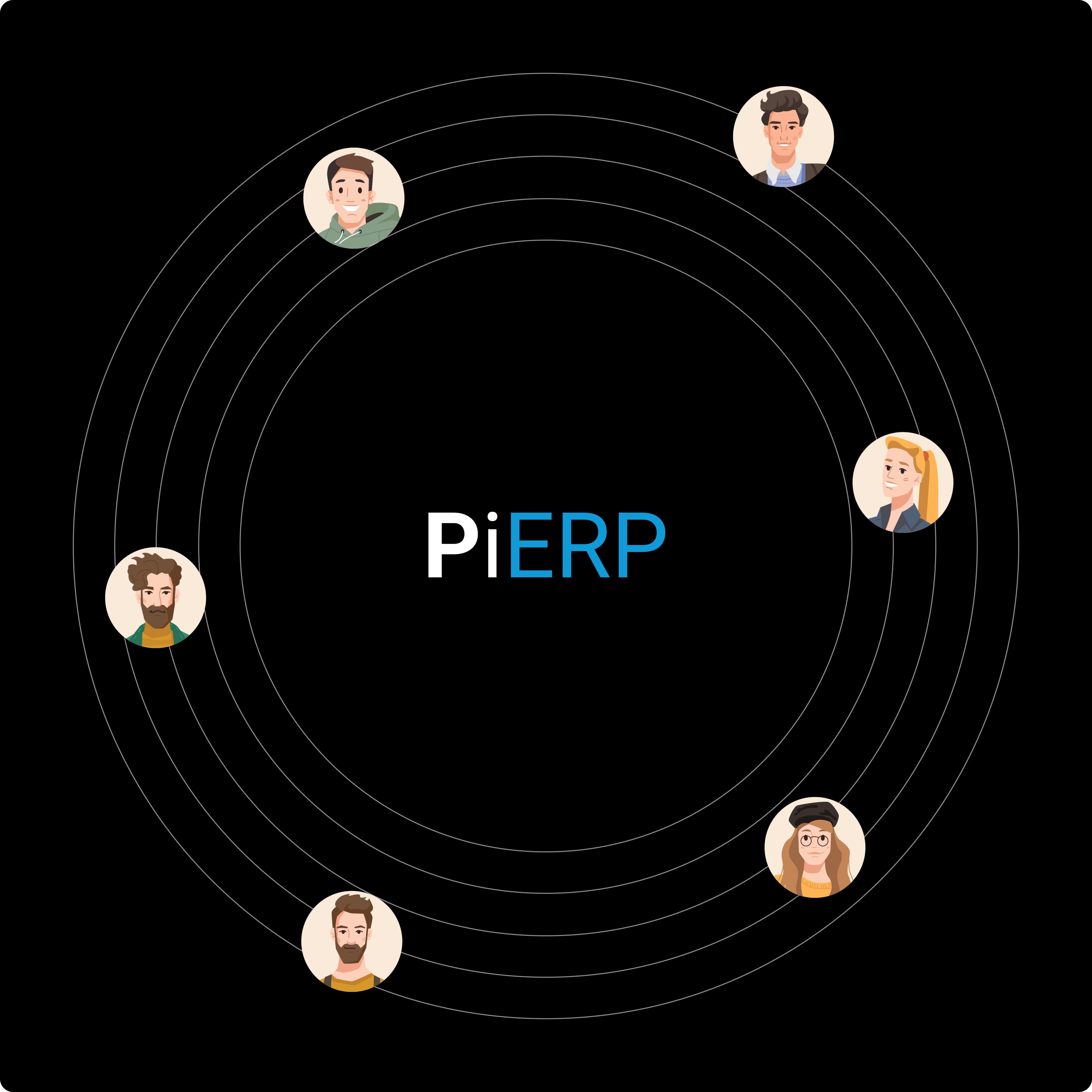In 2025, Enterprise Resource Planning (ERP) systems are not just back-end tools for managing finance, inventory, or HR—they are strategic enablers of digital transformation. With the rapid evolution of technologies like Artificial Intelligence (AI), Machine Learning (ML), Internet of Things (IoT), and cloud computing, ERP is undergoing a massive shift in both functionality and value delivery.
Businesses that adopt modern ERP systems like PiERP’s ERP Solutions are staying ahead of the competition by streamlining operations, enhancing decision-making, and responding to market demands in real time.
Here’s an in-depth look at the top ERP trends and innovations defining the future of ERP in 2025.
1. AI & Machine Learning Take Center Stage
AI and ML are no longer buzzwords—they’re core features of modern ERP systems. From predictive analytics to intelligent automation, AI is helping businesses make smarter decisions, automate repetitive tasks, and detect anomalies in real-time.
At PiERP, we are leveraging AI to power features like demand forecasting, automated reporting, and intelligent alerts. This not only saves time but also enhances accuracy across departments like supply chain, finance, and customer service.
2. Cloud ERP Becomes the Default
While cloud ERP adoption has been steadily growing, 2025 marks the tipping point where cloud-first becomes the standard. Cloud ERP platforms offer scalability, remote accessibility, lower upfront costs, and seamless integration with other systems.
PiERP offers robust cloud-based ERP solutions that empower organizations to access data from anywhere, enabling better collaboration and real-time updates across business units.
3. Industry-Specific ERP Solutions
Gone are the days of one-size-fits-all ERP. In 2025, businesses are demanding customized ERP systems tailored to their industry needs—whether it's manufacturing, healthcare, logistics, or retail.
PiERP’s industry-specific modules are designed to address unique workflows, compliance requirements, and operational challenges. For instance, our ERP for Manufacturing focuses on production scheduling, BOM management, and quality control, while ERP for Healthcare addresses patient records, billing, and inventory.
4. Integration with IoT Devices
IoT integration is making ERP systems smarter and more responsive. Devices and sensors in factories, warehouses, and even retail stores are feeding real-time data into ERP platforms, enabling proactive decision-making.
In logistics, IoT devices can monitor container temperatures, track vehicle movement, and optimize delivery routes. When integrated with ERP, this data provides a 360-degree view of operations. PiERP’s ERP modules support seamless IoT integration for real-time monitoring and alerts.
5. Real-Time Data Analytics & Dashboards
Decision-making today demands more than just historical reports—it requires real-time, actionable insights. ERP systems in 2025 are heavily focused on advanced analytics and interactive dashboards that visualize trends, exceptions, and KPIs instantly.
With PiERP’s custom BI dashboards, managers and executives can make data-backed decisions on-the-fly, improving agility and responsiveness across all departments.
6. Low-Code/No-Code Customizations
Customization used to mean costly, complex development. But in 2025, ERP platforms are embracing low-code/no-code tools, allowing users to create workflows, reports, and even modules without technical expertise.
PiERP includes flexible configuration options, drag-and-drop builders, and user-friendly interfaces that empower business users to tailor the system to their needs—without writing a single line of code.
7. Enhanced Mobile ERP Capabilities
With workforces becoming increasingly mobile, ERP systems must be accessible anytime, anywhere. In 2025, mobile ERP is not a feature—it's a necessity.
PiERP’s mobile ERP application allows employees to access data, approve workflows, track inventory, and view reports on smartphones and tablets, ensuring operational continuity even on the move.
8. Stronger Cybersecurity & Data Compliance
As ERP systems handle more sensitive data, security is paramount. In 2025, robust security features like multi-factor authentication (MFA), role-based access, encryption, and compliance with global data laws (like GDPR and HIPAA) are standard.
PiERP integrates top-tier security protocols and compliance measures into every deployment, ensuring your data is protected against breaches and cyber threats.
9. ERP + E-Commerce Integration
As online sales dominate in 2025, ERP and e-commerce integration is essential. A fully integrated ERP system helps manage inventory, order fulfillment, customer data, and financials seamlessly between online platforms like Shopify, WooCommerce, or custom portals.
With PiERP’s ERP-eCommerce integration, businesses can sync data in real-time, reduce manual errors, and provide a smoother shopping experience for customers.
10. Sustainability & Green ERP
Environmental sustainability is now a business imperative. ERP systems are being designed with features that track energy usage, optimize supply chains for reduced carbon footprints, and support compliance with environmental regulations.
PiERP offers modules that help organizations track environmental impact metrics, promote paperless operations, and manage resources responsibly.
Conclusion:
The future of ERP in 2025 is dynamic, intelligent, and customer-centric. Modern ERP systems are evolving into comprehensive business ecosystems—integrating AI, IoT, mobility, and industry-specific functionality to drive efficiency and innovation.
Businesses that invest in future-ready ERP systems like PiERP are better equipped to stay competitive, adapt quickly to changes, and deliver greater value to customers and stakeholders.
Whether you're a startup looking for a lean ERP or a large enterprise aiming for a digital overhaul, PiERP’s customizable ERP solutions can align perfectly with your 2025 vision. Let us help you transform your operations for the future—today.






